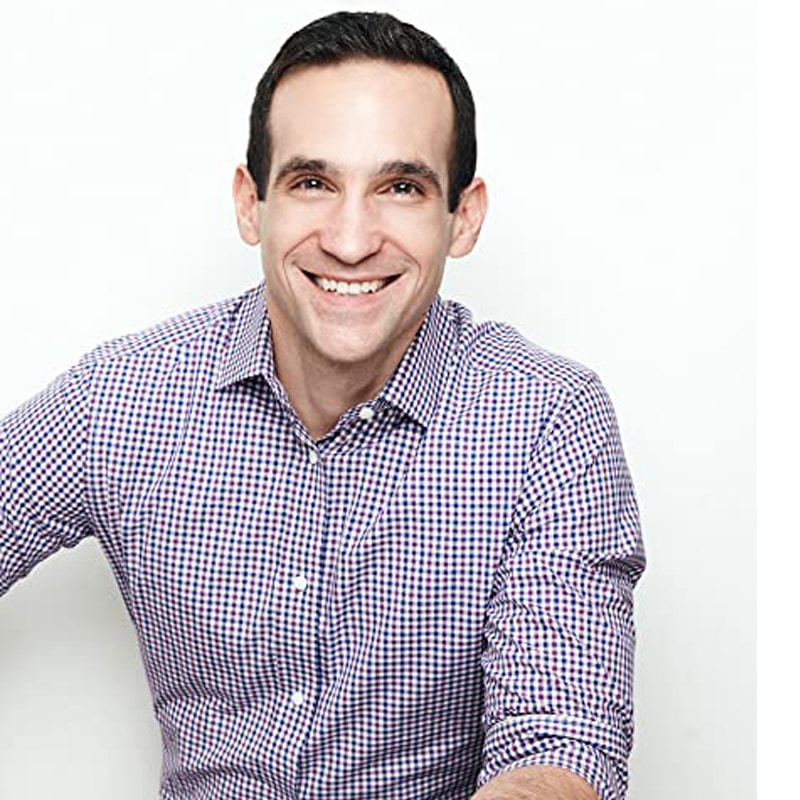
#48
How to focus and become indistractable with Nir Eyal
Nir Eyal
Nir Eyal is an Israeli-born American author, lecturer and investor. He writes, consults, and teaches how psychology, technology, and business intersect. His science-based insights build healthy habits, improve productivity and focus, and manage distraction. He was a lecturer in Marketing at Stanford. He is a Wall Street Journal Bestselling Author of ‘Hooked’ and ‘Indistractable’.
‘Indistractable’ received critical acclaim, winning the Outstanding Works of Literature Award as well as being named one of the Best Business and Leadership Books of the Year by Amazon and one of the Best Personal Development Books of the Year by Audible. In addition to his blog at NirAndFar.com, Nir’s writing has been featured in The New York Times, The Harvard Business Review, Time Magazine and Psychology Today.
Nir has spent over 5 years researching the area of distraction and is recognised as a thought leader on habit-forming technology. Nir invests in habit-forming products that improve users’ lives. Some of his past investments include Eventbrite, Focusmate and Canva.
Subscribe
Find the show on your favourite player
Summary
02:23 What drew Nir to researching distraction
- He was often distracted at work, with family, etc.
- “Looking for distraction is easy to find”
06:04 What we mean by ‘distraction’
- “The antidote to impulsiveness is forethought”
- Distraction is not a character fault
- It’s important to understand what distracts you
- The three causes of distraction: internal, external or a planning problem
08:54 On writing ‘Hooked: How to Build Habit-Forming Products’
- A habit is an impulse to perform a behaviour with little or no conscious thought
- Nir wanted to help people understand how companies like Facebook or Google built products that get people hooked
- You can use the principles for anything, e.g. get children hooked on online learning, people to complete an exercise program, etc.
- Technology is not to blame
12:22 The deeper roots of distraction
- The opposite of distraction is traction
- ‘Trahere’ in Latin means ‘to pull’
- Distraction pulls your further away from your goals
- Stop judging how people spend their time
- At work, many of us focus on the easy tasks first
- Email is a big distraction
17:34 Internal distractions
- Become conscious of your triggers as quickly as possible
- Explore your sensations with curiosity
- Blamers, shamers and claimers
- The ten-minute rule
- Abstinence makes you want to have something more
- Tell yourself “not yet”
26:05 Pain management
- Everything we do is to avoid discomfort
- “Time management is pain management”
28:23 Cognitive enhancers and nootropics
- Know the difference between the effect and the size of the effect
- Focus on what moves the needle
- “Plan your day before taking pills”
31:33 Time boxing effectively
- The flaws of to-do lists
- “You can’t output without input”
- Avoid time-switching
- People are bad at estimating how long things will take to be done
- Multi-channel multi-tasking, e.g. listen to an audiobook whilst walking
39:31 Getting into the flow state
- “I think flow is oversold”
- It is the opposite of deliberate practice, e.g. 10,000-hour rule
43:45 Temptation bundling
- It is substituting a reward from a different unrelated behaviour as the immediate gratification
- The Stanford marshmallow experiment
- Be careful of labelling yourself and your self-limiting beliefs
- “We should be cheap with our time but generous with our money”
55:22 The role of extrinsic motivation
- It is powerful for temporary tasks
- Find intrinsic motivation for longer-term goals
57:06 Distraction in the workplace
- Slack is a great company that is ‘indistractable’
- The three key qualities for an ‘indistractable’ workplace: psychological safety, having a forum, and leading by example
- Slacks’ motto is “work hard and go home”
1:01:32 Build more social connection
- Plan ahead
- The loneliness epidemic
- Dedicate regular time
Links Mentioned: